Do we have a recent history of political persecution with the aid of the Judiciary in Argentina? Absolutely, there should be no doubts that the two main exponents of our own brand of deep polarisation, la grieta, are responsible for having exerted unduly influence over a supposed independent branch of government in order to antagonise political opponents for personal gain. Cristina Fernández de Kirchner and Mauricio Macri that is – President Alberto Fernández appears oblivious, as with most things. A partial judicial system, illustrated by the graphical metaphor of Lady Justice poking an eye out under her blindfold to tilt the scales, causes the deterioration of every democratic institution, putting certain citizens above the law that everybody else must respect. Even worse, it creates doubts even when the cases being pursued appear just, like the current corruption case against Fernández de Kirchner involving former government officials and businessman Lázaro Báez, the one in which the vice-president has stirred the doubt of arbitrariness by questioning the star prosecutor’s personal relationship with the judge leading the case and former president Macri.
The case, known as ‘Vialidad’ and probing alleged public works overpricing, was explained in this column last week, and it has exploded into the mainstream media making prosecutor Diego Luciani an overnight sensation. For the anti-Kirchnerites, Luciani has already become a pseudo-Alberto Nisman — the AMIA special prosecutor who has found dead days after accusing Cristina of treason. For supporters of the vice-president, it forms part of the corrupt and pernicious wheel of ‘lawfare’ that seeks to put her in jail.
The accusation, which goes back to 2007 when this publishing house’s Noticias magazine was the sole journalistic publication investigating Kirchnerite corruption, focuses on the moment Lázaro Báez was unveiled as Néstor Kirchner’s frontman, claims later formalised in a criminal accusation by Elisa ‘Lilita’ Carrió. Now, Luciani along with fellow prosecutor Sergio Mola are accusing Cristina in court of leading an illicit association that defrauded the state through spurious public works projects that were won in cooked tender offers by Báez’s companies. While Lázaro became a multi-millionaire in dollar terms — he’s been found guilty of money-laundering to the tune of US$60 million and sentenced to 12 years behind bars, he’s currently under house arrest — the story goes that he also made sure the Ks got their cut through supposed contracts to rent out hotels and offices of their property both in Buenos Aires and the Patagonia, alongside another sketchy duo, Cristobal López and Fabián de Sousa. All these and more are currently being investigated at the Comodoro Py federal courthouse, with the trial stage at closing arguments.
The case has been elevated to public trial, a second instance of the Argentine legal system that most closely resembles the US trials seen in Hollywood movies. With the novelty of being held via videoconference, the public nature of the case has allowed prosecutor Luciani to go on a full court attack against CFK, something we haven’t really seen from the Judiciary in a few years. Taking the spotlight in a serious accusation against Fernández de Kirchner has its costs, and thus Luciani suffered his first ‘carpetazo’ or media operation against him this week. This is a common practice in the Argentine political arena, by which private information is “leaked” to a friendly media organisation that does its thing and puts it on the agenda. Look no further than the infamous pictures of President Fernández and partner Fabiola Yáñez partying in the Olivos residence during the hardest days of the Covid-19 lockdown to get a taste of the power of a carpetazo — putting the wrongdoing aside for a minute, this also suggests that this methodology in of itself isn’t nefarious, it’s just part of “the game.”
In a story published in Página/12, a friendly newspaper for the Kirchnerites, pictures of the prosecutor playing football along with one of the judges in the public works case (Judge Rodrigo Giménez Uriburu) gave Fernández de Kirchner the perfect platform to accuse the judiciary of persecution. The carpetazo kept getting worse for Luciani: not only did he play in the 'El Liverpool' amateur football team along with the judge in their biggest case ever, the tournament was held at Los Abrojos, a private estate owned by the Macri family that is the current residence of the former president. The pictures showed Luciani also played alongside Roby Martinez (Buenos Aires City Mayor Horacio Rodríguez Larreta’s brother-in-law), Jaime Méndez (mayor of San Míguel and also part of opposition coalition Juntos por el Cambio), and Judge Mariano Llorens (one of the magistrates in the appellates’ court that tossed out espionage accusations against Macri in the ARA San Juan case).
In a beautiful stroke of irony, CFK remembered this week how in 2017 Macri had shown Chinese Premier Xi Jinping a video of a goal he scored from a free kick. The opponents were none other than, you guessed it, El Liverpool. The day after the news broke, Judge Giménez Uribiru provocatively sipped his 'El Liverpool' mate ground during the public hearing. Fernández de Kirchner and several other plaintiffs meanwhile have asked the court to remove Luciani and Giménez Uriburu for a supposed lack of impartiality.
It is rather vulgar to see the star prosecutor in a major case against the vice-president playing football with the judge in the case and several other members of the Judiciary that have been accused by the Kirchnerites of carrying out ‘lawfare.’ Even more tasteless is the fact that they played in a property owned by Macri, who on several occasions actually shared the pitch with their team. This is true because, as stated at the beginning of the column, political persecution through the Judiciary is a real thing in Argentina, used by the Macri administration to jail Kirchnerist officials. And, as mentioned last week, Néstor Kirchner and Cristina Fernández de Kirchner both used the Judiciary to attack their political opponents while covering up their own tracks (which is why it is rather pathetic to see CFK’s followers speak of “lawfare” as a systematic plan against their stoic leader).
Should prosecutor Luciani be thrown off the case, accused of having lost his impartiality? Not necessarily, a picture doesn’t prove that his judgement as a prosecutor has been lost. But his reputation, along with the judge’s, has been placed in doubt. And this is extremely pernicious when one is trying to lead an accusation against such a powerful person as Cristina, whose main line of defence is to continually question the court’s intentions.
In what was probably the highest-stakes case ever heard by the Argentine Judiciary, judges and prosecutors now seen as heroes could also have been accused of being tainted. In 1985, prosecutors Julio Strassera and Luis Moreno Ocampo accused Argentina’s military leaders for their human rights abuses during the ferocious dictatorship that had recently ended. Strassera had been named during the dictatorship while Moreno Ocampo’s family had strong ties with the military. Judge Andres D’Alessio had been secretary of the Supreme Court during the dictatorship while Judge Ricardo Gil Lavedra held the rank of Second Lieutenant. Any yet, that court’s ruling laid global precedent as Argentina became the first nation to prosecute and condemn their leaders, who had systematically violated human rights. The previous case was Nuremberg.
Can we expect that same level of impartiality from Luciani and Giménez Uriburu? It’s possible, but after so many years of crooked justice, it’s impossible not to feel a little disappointed by this week’s revelations.









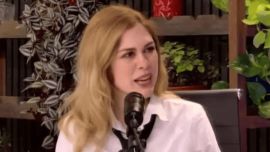









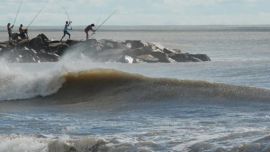
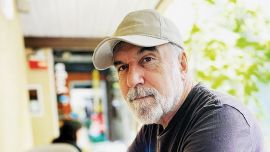
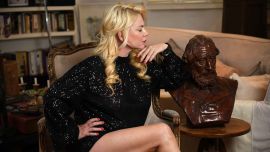
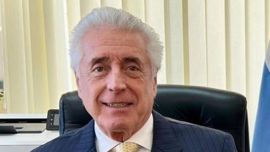
Comments